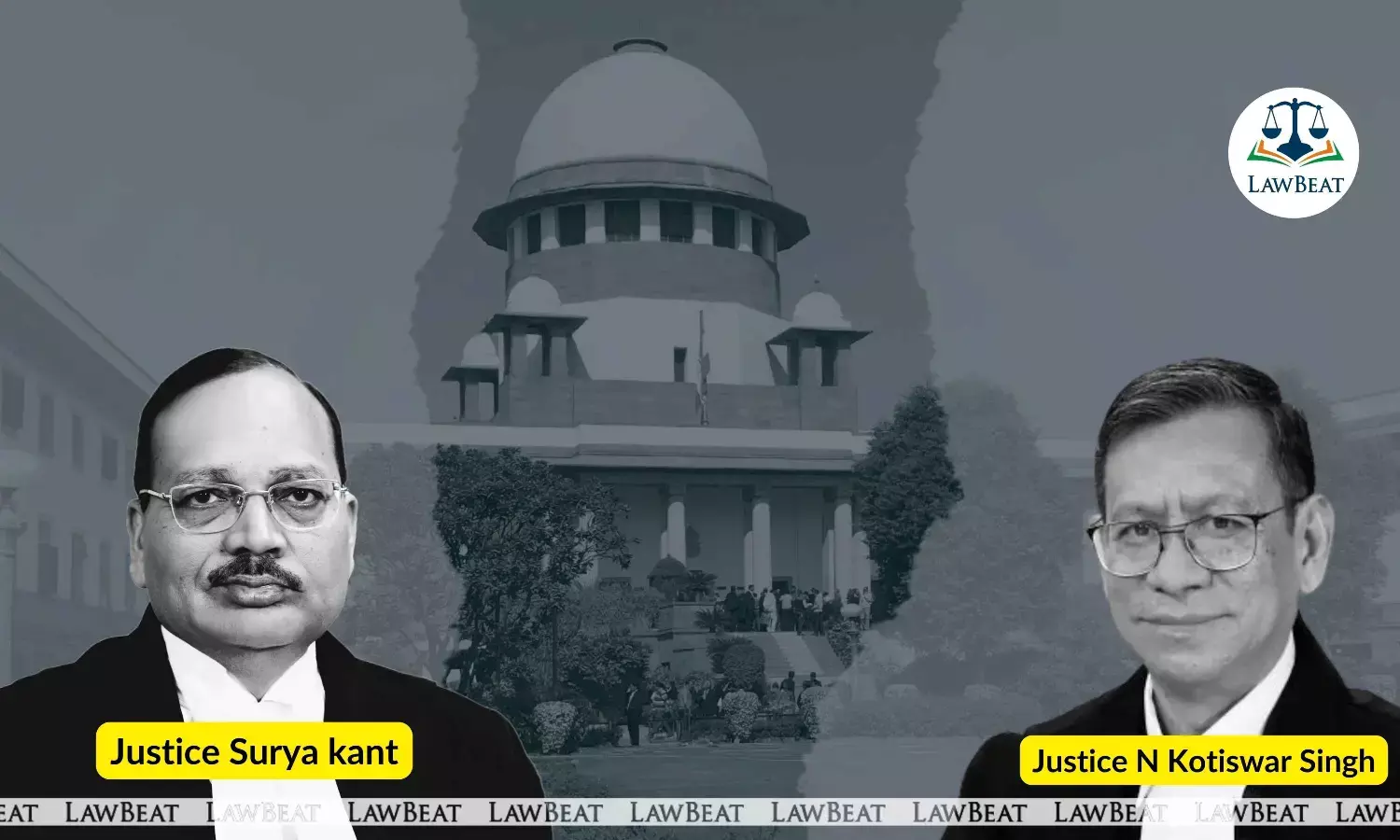Judicial intervention in land revocation limited to examining procedural safeguards: Supreme Court

SC cautions against using criminal law as a tool to recover money, calls it a threat to justice delivery
The Supreme Court has said that allotment authorities possess the inherent right to cancel allotments upon violation of stipulated conditions, and the judicial intervention in matters concerning land revocation should be circumscribed to ensure adherence to procedural safeguards.
A bench of Justices Surya Kant and N Kotiswar Singh upheld the cancellation of 2003 allocation of land admeasuring 125 acres situated in the Utelwa Industrial Area, Jagdishpur, District Sultanpur, Uttar Pradesh by the Uttar Pradesh State Industrial Development Corporation to Kamala Nehru Memorial Trust and another over failing to fulfill the stipulations including chronic defaults in payment of money.
Considering the public trust doctrine in allocation of resources, the bench said, when a substantial tract of industrial land is allocated without a comprehensive evaluation, it raises critical questions about adherence to these principles.
"The doctrine requires that allocation decisions be preceded by a thorough assessment of public benefits, beneficiary credentials, and safeguards ensuring continued compliance with stated purposes," the bench said.
Examining the matter, the court noted none of the alleged acts of non-demarcation, removal of encroachment, or non-delivery of possession made by the appellant KNMT constituted conduct that would frustrate the performance of the allotment terms.
On the contrary, the court said, the record demonstrated that UPSIDC acted in accordance with prescribed procedures and as per the terms of allotment, and the KNMT failed to fulfil its obligations, particularly regarding the timely submission of documents required for executing the lease deed.
The bench also considered whether the cancellation of allotment of the subject land was procedurally defective and legally untenable.
It said the matter has to be examined through the prism of administrative law principles vis-à-vis the contractual powers of the State. The court stressed on administrative autonomy vested in such authorities while safeguarding allottees’ rights through procedural fairness.
The bench noted that the dues for the subject land, allotted in 2003, remained unpaid despite multiple communications spanning several years.
"KNMT not only failed to make timely payments but also sought unwarranted concessions, including waiver of interest and rescheduling of dues. This persistent non-compliance establishes KNMT as a chronic defaulter, while the continued attempts to seek waiver evince a deliberate strategy to avoid payment obligations. UPSIDC’s action in treating KNMT as a defaulter was, therefore, both justified and necessary to preserve the integrity of the allotment process," the bench said.
Holding that the cancellation of allotment by UPSIDC was fully justified and in accordance with law, the court stressed that allowing such deliberate defaults to persist unchecked would undermine the entire framework of land allocation and set a detrimental precedent.
Court noted UPSIDC allotted the subject land to KNMT within merely two months of application, raising questions about the thoroughness of the evaluation. Furthermore, during the pendency of this dispute, UPSIDC demonstrated remarkable alacrity in considering alternative allotments to M/s Jagdishpur Paper Mills Ltd.
The bench held that the allocation of 125 acres of industrial land to KNMT without a competitive process fundamentally violated the doctrine, which demanded proper procedure and substantive accountability in public resource allocation.
Court also declared and annulled the actual allotment or any offer thereof made by UPSIDC in favour of M/s Jagdishpur Paper Mills Ltd for the subject land, for being contrary to public policy.
"The hasty allotment followed by years of litigation exemplifies systemic deficiencies in the allocation process. This necessitates comprehensive directions to ensure that future allocations uphold principles of transparency and accountability, thereby preventing prolonged disputes while ensuring that public resources genuinely promote industrial development and economic growth," the bench said.
Therefore, Court directed the Uttar Pradesh government and UPSIDC to ensure that any such allotment in the future is made in a transparent, non-discriminatory and fair manner by ensuring that such allotment process fetches maximum revenue and also achieves the larger public interest like industrial development priorities, environmental sustainability, and regional economic objectives.
Case Title: Kamla Nehru Memorial Trust & Anr Vs UP State Industrial Development Corporation Limited & Ors
Download judgment here
